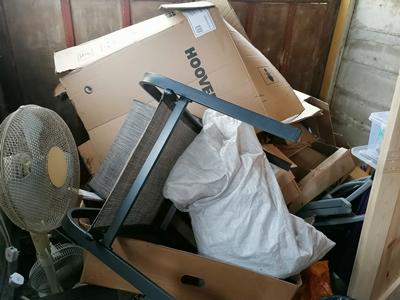Rubbish piling up: the environmental impact of the COVID19 shutdown

Analysis by Professor Ian Williams and Anne Stringfellow from the University of Southampton and Keiron Roberts from the University of Portsmouth has highlighted the enormous impact of the COVID19 lockdown measures on waste management in the UK. Their analysis shows that with almost all household waste recycling centres closed, and the big increase in home clearances and DIY projects, there has been a reported 300% increase in reported fly-tipping in rural communities.
Nearly half of all local authority recycling services in the country have stopped or reduced since the lockdown was introduced and the team warns that that unless people are able and prepared to store recyclable waste safely at home, it is very likely to get sent to landfill or incinerated, increasing its environmental impact. The closure of charity shops is also likely to affect people’s ability to ensure their unwanted goods can be re-used by others.
Food waste is also likely to have a greater impact on the environment as disrupted supply chains and import restrictions are likely to increase the levels of food loss. The researchers also note that the £1.9 billion worth of groceries that were panic-bought and stockpiled at the start of the crisis is likely to have seen more food being thrown straight into the bin.
The analysis, published on The Conversation website, highlights the need to move away from a “linear economy”, where products are disposed of at the end of their lives, to a “circular economy” where all waste is recovered and returned to manufacturers as a resource. The long term disruption caused by this pandemic, and any major incidents in the future, poses a big threat to the sustainability and economic benefits of a circular economy. Large-scale extraction of resources, which causes significant environmental impact, may be required as a result of more reusable being taken out of the cycle and ending up in landfill.
Professor Williams of the School of Engineering at the University of Southampton said: “This pandemic has been a wakeup call to governments and the waste sector to ensure that supply chains and markets for recyclates are diverse and resilient.
“Our current waste management system will need to evolve to be resilient to the impacts of these rare, extreme global events to create a successful circular economy.”
The increase in online shopping as a result of shop closures has led to warnings about cardboard shortages as people receive more and more online shopping deliveries and are unable to recycle the boxes.
Professor Williams added, “Reducing single-use packaging, introducing more deposit return schemes and compostable alternatives, and applying novel systems to enable better outcomes would keep resources in the system for longer. For example, alternative ways to reuse delivery packaging in a safe, hygienic way rather than recycling it would reduce dependence on cardboard.”
“Ultimately, more investment in waste management will be needed in as the value of recycled resources increases. We should use the economic stimulus packages that will come after this pandemic to invest in these technologies and systems, building a more diverse and resilient circular economy.”